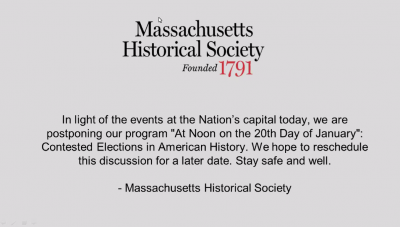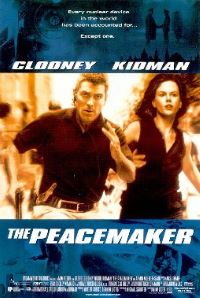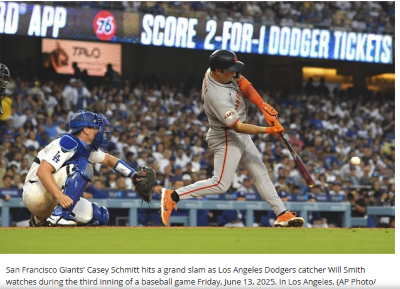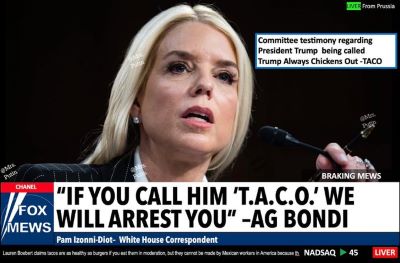
We are a storytelling species. That means history is important. The enrollments as history major majors may be in decline. The earning prospects for history majors may seem bleak. But the importance of history remains.
In one of his last acts as President, the outgoing President released his 1776 Commission report.
In one of his first acts as President, the incoming President disbanded that commission.
SHARING HISTORY
History is important. People know where they were when they learned about the Japanese attack on Pearl Harbor. People know where they were when they learned that President John Kennedy had been assassinated. People know where they were when the learned the World Trade Towers had collapsed. Not only did people know where they were, they had similar reactions. These national events became part of the shared history for the generation that experienced them and the subsequent generations that remembered them.
The situation is drastically different with civil war events. These events from America’s three civil wars produced divided responses. People knew where they were when they found out about Lexington and Concord but they did not share the same response. People knew where they were when they found out about Fort Sumter but they did not share the same response. People know where they were when they found out the events of January 6, but they do not share the same response or even the same set of facts:
Was it an attempted insurrection instigated by the worst President in the history of the United States, or
Was it an attempt by antifa to undermine the greatest President in the history of the United States?
HISTORY SCHOLARS
Historians debate who is the greatest and who is the worst President in American history. To the best of my knowledge, there has never been an instance where a single individual simultaneously was considered to be both the best and the worst presidents by approximately half the population for each. Perhaps the non-Presidential figure with a similar split in the American population is Robert E. Lee.
As a storytelling species, it is critical that we have shared stories to tell. Think of how much of family gatherings is dedicated to the telling of family stories that you have heard before as well as new ones. Think of how hard it is to have family gatherings today without and without Covid. In the current issue of Time, Charlotte Alter writes:
A democracy is only as strong as the faith of its participants. At the very least, that faith must be rooted in some sense of shared reality, a willingness to agree on to disagree according to the laws laid out in the Constitution.
She is correct but there is no shared reality now. The differences are not simply people having different favorites for the Superbowl or whether baseball or football or basketball is the national sport. There is no agreement now on even what the score is of a given game, whether the players are legitimate, or if a game is real, meaning not digitally created.
The last serious well-known effort to create a national narrative for the 21st century today was by Jill Lepore, These Truths: A History of the United States (2018). By coincidence, today I received my hard copy of The American Historical Review (125/5 December 2020). Her book is the subject of the roundtable for this issue with four scholars commenting on it. Once I have read it, I will report on their comments on the success and/or failure of her book (previously I wrote about a roundtable on “Native American and Indigenous Studies: Another Culture Wars Episode.”
By coincidence, on the same day that I received the journal, I watched an online lecture presented by the American Philosophical Society on the book Past and Prologue: Politics and Memory in the American Revolution by Michael D. Hattem. The main theme of the talk was the absence of an historical memory in the new nation. By that I mean, the former British colonists had a long historical memory through their being British, a memory that extended to the French and Indian War. The British colonists were proud to support their side against the French and the Indians allied against them. They were proud to express their loyalty to King George III. And then they weren’t.
Now the new country was faced with the task of creating a shared national history for a country that was younger than their children. Hatten spoke about the transformation that occurred as people cut themselves off from their shared British history to create a new shared American history.
Christopher Columbus was part of that effort to create a shared history. The people in the colonies from Pilgrims to Puritans to Dutch to Quakers to Cavaliers plus others had not come to America at one time and for the same reasons. By the time Georgia became a colony, Virginia had “celebrated” its centennial. In this sense, all American citizens had Columbus in common. If he hadn’t done what he did, none of them would have been here. As a result, he was part of creating a shared national history that went back before 1776 and wasn’t British. Americans could observe a Columbus tricentennial in 1792, name the capital after him, and use Columbia as a non-British national symbol (and college name).
Another shared history-based form of identity was as God’s New Israel. It wasn’t mentioned in the talk and I don’t know if it is in Hattem’s book or not. A connection with an event three millennia ago certainly was one way to develop a non-British history. This identification was not a new one post-1776 but it was an example of how the United States crafted an identity for itself.
Finally, homage should be paid to the one individual above all others who provided Americans with a shared identity. Without George Washington holding the country together, no one knows if there even would have been a united country to hold together. Perhaps there would have been two.
THE UNSHARED HISTORY
At present, there are three major incompatible views about the American Revolution, the Declaration of Independence, the Constitution, and the creating of a shared national narrative. The three are:
1. Woke view: The New York Times 1619 – The documents are racist and the country is illegitimate based on white supremacy and social stratification. 1619 has been the subject of previous blogs but its story needs to be updated based on ongoing reactions to it.
2. Patriotic view: Hamilton, the Musical – A flawed but great start and an ongoing story as evidenced by the cast of the show. It also has been the subject of previous blogs.
3. Trumpican: 1776 Commission – They are divinely inspired documents especially through the Second Amendment.
Before turning to these three incompatible national narratives, I will start the challenge to craft a national narrative with the four, maybe five national myths that are regarded as historical by tens of millions of people. These myths are:
1. the myth of the empty land
2. the myth of stolen from Africa
3. the myth of no slavery in the North
4. the myth of the Lost Cause.
Now we have a new myth attempting to join these four longstanding ones:
5. the myth of the stolen election.
Whether or not this most recent myth has the power to be sustained cannot yet be determined. It is still being formed and is connected to the insurrection attempt instigated by the loser. The well-known saying that “I could stand in the middle of 5th Avenue and shoot somebody and I wouldn’t lose voters” now has been proven true. That saying may become part of the myth and detached from its January 23, 2016, date. In the myth it will be easy to conflate these two January events.
Obviously, I have my work cut out for me if I am to go through this process. We do need a shared national narrative for the 21st century. For me, at least, at this point in time, the steps outlined here are a way towards creating one even though it won’t even matter if I succeed.






Peter – You bight off much more than you can effectively chew. This doesn’t mean I disagree but more I wonder how you will handle it. Either way I am with you.
One shared memory that hurts is the image and reputation of Robert E. Lee.
I’ve read most all of Bruce Canton’s works and those of Shelby Foote. Both highly regarded Civil War period scholars. They all describe the shear pain Lee endured as he was forced to decline Lincoln’s offer of command of the United States Army. He had been first in his class at West Point and had demonstrated again and again both his devotion to duty and outstanding skill.
As any of us listen to Jamie Frazer of Outlander on PBS, we again hear the words home and family are stronger motivators than loyalty to king or nation. Robert Lee, the man, could not bring himself to fight against his homeland of Virginia no matter how strong his belief in his nation. In my book, Lee is the ideal American making a terribly difficult choice where there was no right answer just love of family and home. Love of family and home didn’t really have anything to do with slavery even though his family were slave owners. I’ll ask a question I can’t answer, how many of our heroes had a dark side hidden somewhere? This doesn’t make it right but we are all human. I could tell you some of my secrets that I am not proud of, however, it is my hope that these secrets don’t now define me or my life. Somehow we all need to get beyond this destructive thinking. Which is not to suggest that their aren’t truly evil people. We can’t spend our time hunting out and exposing the wrinkles in everyone’s past…we’d get no where except in a world of hurts….not a good place.
I strongly believe in America and all its’ people. I love my country but home and family come first. I would like to think that I am as good as Robert E. Lee. That would be an honor.
Hi Peter,
I appreciate the comments but we are addressing the issue from two different perspectives. You are writing about as a real live flesh and blood human human being. I was referring to his legacy, meaning how people remember him as a two-dimensional figure who can be cast as a villain or hero in he culture wars now-turned Civil War. We are not at a point as a society where Lee can be considered as a person except perhaps among scholars and historians. Now that the San Francisco school system has decided to remove Lincoln, Washington, and others from the school names you see how far removed we are from being able to judge people as people.
Peter
Peter
Peter – I don’t know what to think or to say except something has changed and it isn’t good. I took ROTC at Rutgers for two reasons a. I believed in service to our great country that had provided me so many benefits and b. I needed the money it would provide.
I served on active duty and in the reserves for 12 years. I served under every President from Eisenhower to Carter as my Commander in Chief. My loyalty never wavered once.
Some of my assignments were as “pay officer” for my unit. I was required to wear a 45 automatic on my hip…a very lethal weapon as I walked the streets of our cities doing my duty. Believe me, I was always very uncomfortable wearing such a weapon in public on the streets. I had carried and used lethal weapons since I was 6 or 7 yrs old. I was very comfortable carrying such weapons but I knew and understood how dangerous they were and I understood how to use them safely (not in populated areas because accidents happen). This past week in either the NYTimes or Time Magazine there was a picture of men dressed as soldiers in one of the “so called” loyalty groups demonstrating at the Virginia Capitol. They were really decked out to say the least. They looked like our best Special Forces or Delta Strike Units. They were heavily armed to say the least. I was appalled really appalled that these guys were out among our citizenry in our populated areas out fitted like this. It was more than scary. How have we managed to reach this point where this sort of behavior is in any way acceptable? I believe in the 2nd Amendment but this is way beyond the 2nd Amendment….this is crazy. I am fearful and I am not a fearful person….not much has ever scared me. When we next meet, if you wish, I will relate a situation that happened to me very recently (last few weeks) that made me very fearful. It is a very personal experience and one I am not comfortable writing about here for public view. I learned that I was not invincible. Which once again just proves that I am human. Story for another time. Anyway, the bottom-line is we are in a very dangerous and hurtful space right now and all I can do is continue to love my country unconditionally but not blindly remembering that it is home and family before all else.
Peter
Hi Peter,
I share your concerns. Yes, something has changed and it is for the worse. From the simpleminded decisions by the San Francisco school board to the conspiracy theories so eagerly embraced by Trumpicans, our country has deteriorated into our third civil war. I write about it in my political blogs which I do not send to the history distribution lists. But I think just as teachers have to deal now with the January 6 insurrection based on the Stop the Steal lie so too historical societies are going to have to address the division at some point. In this regard the situation is more like the first civil war during the American Revolution when families and communities were split between Loyalists and Patriots. I really don’t know how Woke and Trumpicans can live in the same country. I wish I had some good news for you but I don’t.
Peter